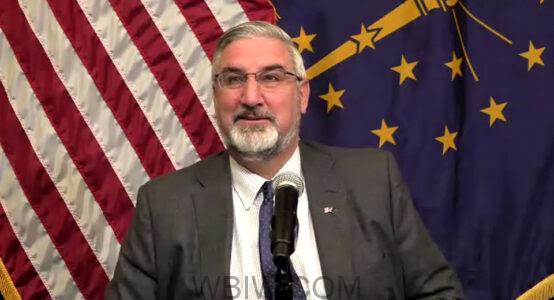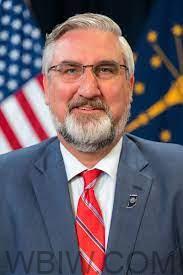
INDIANA – Gov. Eric J. Holcomb today announced three phases of new state work policies that will offer employees more workplace flexibility, enhance their experience and well-being, and continue efforts to make compensation more competitive.

“We pledged to evaluate the employee experience to make sure that we are taking care of our most valuable resource – our people,” Gov. Holcomb said. “These changes make the State of Indiana a more flexible employer who values continued education, employee wellness, and recognition. These changes will set us apart as an employer that attracts and retains top talent.”
Agency leaders and employees from across state government gave feedback about workplace policy changes that would contribute to creating the best environment for employees to feel valued, collaborate to provide great government service, be invested in their work, and contribute positively to their workplace and communities.
The State Personnel Department will implement work policy changes in three phases, beginning March 7.
These initial changes include:
- Flexible work arrangements, allowing state agencies to permit up to 15 hours per week of remote work for employees whose work may be performed outside of state facilities
- Education reimbursement, allowing full-time employees to be reimbursed for up to $5,250 annually for the cost of an advanced degree, state licensure or certificate
- Referral bonus, rewarding current employees who recruit talented people to public service with the state with bonuses ranging from $100 to $500
- WHOLE Employee policy, which allows state agencies greater flexibility to conduct employee engagement, wellness, learning and development-related activities
- Community Service Leave, increasing the number of paid time off hours full-time employees may spend annually performing charitable service to 15
- New Employee Leave Time, granting 22.5 hours of personal leave to use in the first six months of employment
- Re-Employing Retired State Employees, creating a special classification for retired state employees to return to state employment, which enhances the knowledge and experience in state agencies
- Bridge to Retirement Program, which allows agencies to hire a new employee to begin training with an employee who has set a retirement date, to foster a smooth transition
Phase 2, which will become effective May 1, will launch a dependent care support survey to gauge child- or dependent-care barriers to employment and re-establish the Governor’s Public Service Achievement Awards in conjunction with a revitalized Spot Bonus Program to efficiently reward exceptional service by state employees.
This summer, Phase 3 will include the results and policy recommendations from the ongoing Comprehensive Compensation Study. The results of the study will help inform salary discussions for the next biennium budget.
Earlier this year, executive branch employees received a general salary adjustment for the first time in a dozen years, resulting in an average 5 percent increase. Annual performance assessments are also underway, which will result in one-time bonuses paid in early March.
An overview of the policy changes and a message from Gov. Holcomb can be found here.



